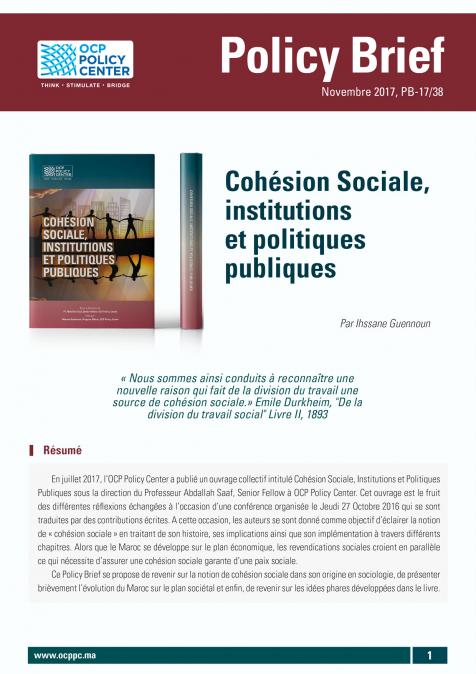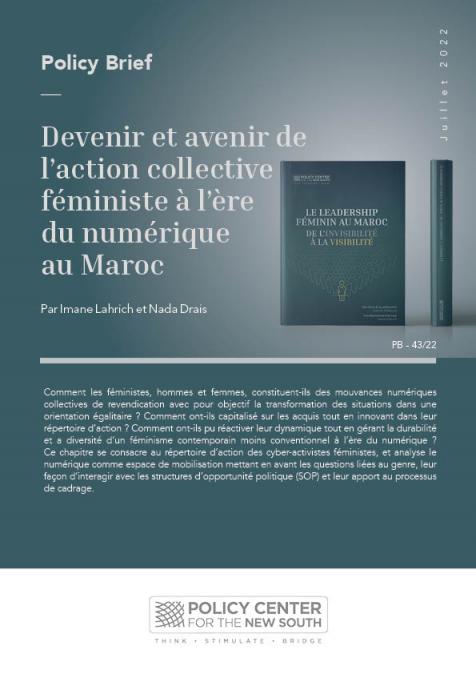Publications /
Policy Brief
En juillet 2017, l’OCP Policy Center a publié un ouvrage collectif intitulé Cohésion Sociale, Institutions et Politiques Publiques sous la direction du Professeur Abdallah Saaf, Senior Fellow à OCP Policy Center. Cet ouvrage est le fruit des différentes réflexions échangées à l’occasion d’une conférence organisée le Jeudi 27 Octobre 2016 qui se sont traduites par des contributions écrites. A cette occasion, les auteurs se sont donné comme objectif d’éclairer la notion de « cohésion sociale » en traitant de son histoire, ses implications ainsi que son implémentation à travers différents chapitres. Alors que le Maroc se développe sur le plan économique, les revendications sociales croient en parallèle ce qui nécessite d’assurer une cohésion sociale garante d’une paix sociale. Ce Policy Brief se propose de revenir sur la notion de cohésion sociale dans son origine en sociologie, de présenter brièvement l’évolution du Maroc sur le plan sociétal et enfin, de revenir sur les idées phares développées dans le livre.






